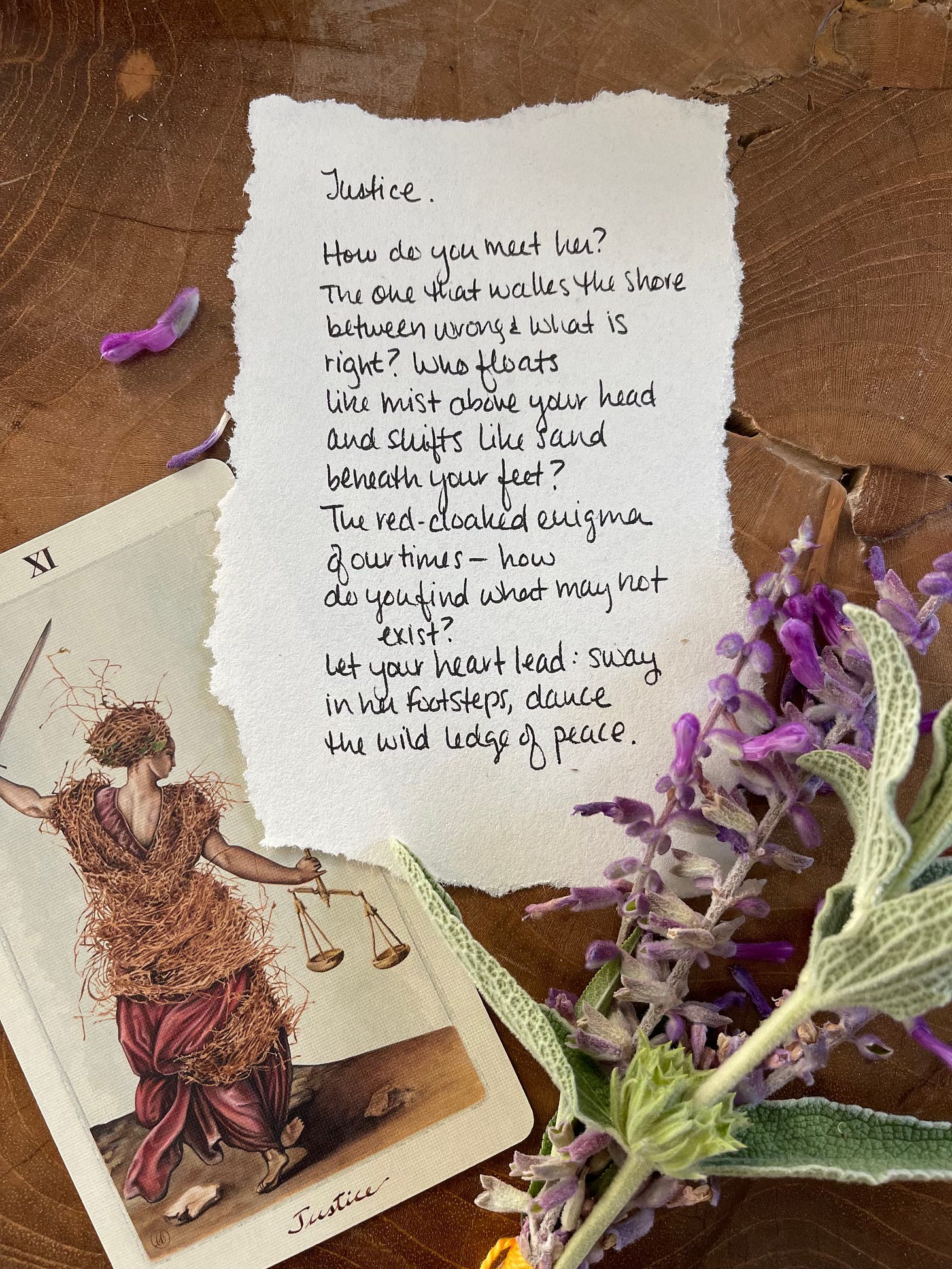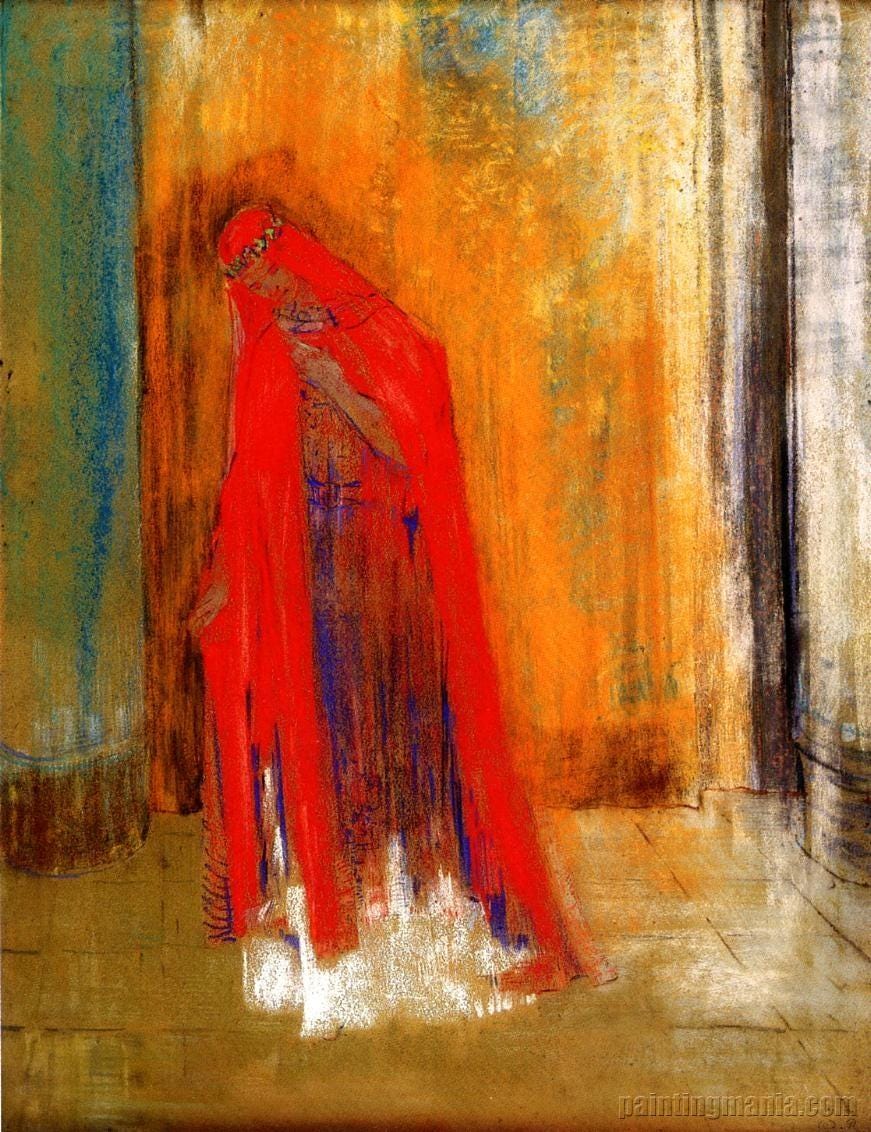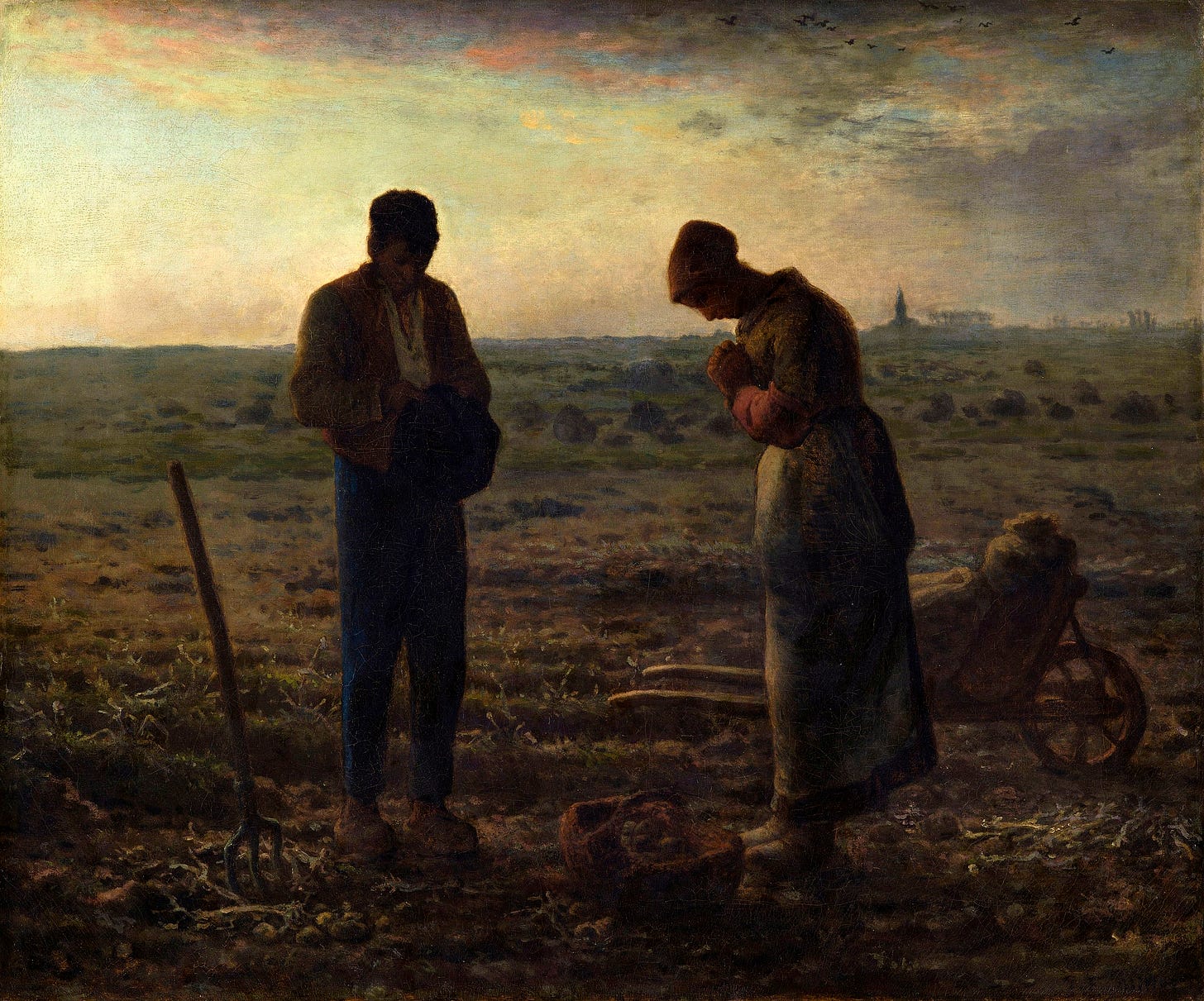
I once made a practice of night-time walks. Mid-stroll I would look up at the stars and try to learn them by name. It was during “high covid times.” (Remember those?) I was homeschooling my two kids (then 4 & 6) and I had them draw stellar charts in little notebooks and use our favorite star-mapping app to locate the constellations over their heads. I found it incredibly moving to stare at these ancient points of light still dancing through the patterns mapped by my ancestors, at a moment when life felt precarious, despite the slow monotonous flow of our days at home.
Two of the stars above us, Zubeneschmali and Zubenelgenubi in the constellation Libra, have served as symbols of cosmic balance across time and cultures. Ancient Mesopotamians noted how the sun positions itself directly between them on the autumn equinox, attributing to them a vital role in the cyclical rebalancing of solar energies. Ancient Akkadians, Greeks and Romans, all depicted the stars as two opposing points on the cosmic ‘weighing scale’ we have come to associate with the astrological sign today. For endless generations the sun’s movement through this constellation harkened the coming winter after a season of sunlight and coincided with the agricultural harvest.
“You reap whatever you sow,” the Bible says.

But who had sown a global pandemic? The theories that have accumulated about the virus’s origin since that spring in 2020 will never be able to account for the loss that flows in its wake. Perhaps that’s why, drawing tarot after the kids’ bedtime, I looked askance at Lady Justice and her scales during those pandemic years when I first took up reading the cards.
The Christian interpretation of Justice that I absorbed as a child led me to associate the staunch figure with vengeance, retribution, and moral scolding. In the Rider Waite Smith depiction, her formidable stance and ironclad symmetry amplified my impression. But I know that Christianity is not a monolith and recently decided to check in with Brittany Muller’s The Contemplative Tarot: a Christian Guide to the Cards, to get a sense of a modern Christian reading. I am eased by her description of Justice as a call to “love our neighbor well,” but only just so. When Muller writes that “Lady Justice’s scales are for lifting the poor, and her sword is for casting down the mighty,” I am squirming under the punitive tone again.
Nature, like the seasons changing, dark into light, balances her ledgers without discrimination. And yet, among humans, disparity finds endless ways to reinforce itself so that even under the pressure of natural disasters (illness, flooding, earthquakes) that “shouldn’t” show class preference, those who are already struggling are more vulnerable to lasting effects. And those who are at the top: are further removed from the empathy and the sense of belonging which humans inherently crave.

Perhaps that’s why in the ancient Roman tradition the goddess of Justice, known as Astrea/Dike, is said to have fled the Earth the moment that the ancients stopped tending their fields in peace. When instead they began to sail to foreign lands, stealing from their neighbors, and eating the animals that before had once been helpers, plowing their fields, Astrea left us. She rose to the starry heavens with a warning cry: “Verily wars and cruel bloodshed shall be unto men and grievous woe shall be laid upon them.”
Yeah, that sounds about right.
But does the story stop there? If Justice were such a hopeless case, why would we keep clamoring for her? Every parent knows that ‘fairness’ is at the forefront of the mind of every five-year-old from the minute her ice cream scoop looks smaller than her brother’s. We not only demand that Justice exist, we want to be on her side or—at the very least—we want her on ours.
I recently signed up for a course on Jung and the Art of Individuation in which one of the speakers gave an insightful presentation on the artist Odilon Redon, a painter of the Symbolist tradition, who created multiple portraits of the goddess Sophia, worshipped by Gnostics (among others) as the female counterpart to Christ. A goddess of Wisdom, she, like Astrea, is fabled to have absconded the realm of humanity when we got too greedy. Instead of retreating to the stars, she took refuge behind a red veil, absconding with her divine secrets. (Many depictions of Justice, in fact, include a red curtain). But Christian mystics, Redon among them, believed that Sophia was on the brink of return. That she lived within us as a spiritual counterpoint to the materialist nature of modernity waiting to be reawakened. In some circles, Sophia is synonymous with the Holy Spirit.
In Sophia/Astrea, I meet a Christian configuration of Justice that resonates.

I thought of her recently while re-listening to Tara Brach’s audiobook Nourishing Intimacy. There Brach touches on themes of justice and how they intervene in our attempts to forge connection, to find belonging. No one, she says, no matter how enlightened, avoids conflict. “We’ve got programming to go for what we want and to avoid what we fear. And our needs can clash with other people’s needs.”
She encourages her listeners not to see conflict as bad. The minute that we do that, she warns, we’ve distanced ourselves from “the field of healing.” Instead, she asks us to deepen our attention by sharing empathy for ourselves and the other person.
It may not seem like it based on current news coverage, but we are hardwired for this. We have mirror-neurons in our brains that allow us to share the experiences of the people around us—their joys, their sufferings, their hopes and disappointments. In the realm of the mirror-neuron, we are one.
This is the cosmic sphere of Sophia/Astrea/Justice that did not abandon humanity for the stars. In Jungian terms, we merely projected her “out there” into the heavens when the empathetic structures of our brain became obscured by needs that, at one point in our collective history, overwhelmed all of our other impulses. Neuroscience confirms that in moments of desperation, limbic activation deadens the firing of her mirror-neurons. So, when stressed, Astrea departs, and we go looking for a sword with which to smite the enemy — to divide us into good and evil.
Brach shares an anecdote about a mom making pancakes for her two young kids, who begin to argue about who will get to eat the first pancake to come off the griddle. The mom identifies a teaching moment and tells her sons: “If Jesus were sitting here he would say: let my brother have the first pancake, I can wait.” To which the older brother tells the younger: “You can have the first chance at being Jesus.” Brach’s audience laughs.

We are quick to divide ourselves into martyrs and tyrants, forgetting that a pancake can be cut in halves—or thirds! (Don’t forget Mom!) We can’t see these solutions if we’re caught in black and white thinking, binaries of right and wrong. This is, in my view, the invitation of the scales—and libra season more broadly—to hold opposing truths in the same hand, and dance to a rhythm that allows for true equity. After all, the scales dance in perfect reflection of each other — as two sides of a single mirror — like the brain, firing synapses in the emotional patterns it perceives in another.
Through this lens, Justice becomes a mediator between idealism (wouldn’t it be great if we could all have a whole pancake at the same time!) and reality (only one is ready right now and everyone’s hungry). The sword no longer operates as an instrument of punishment. Instead it becomes the instrument of discernment, deciding on the best course of action in a particular situation, (slice that pancake up), action that is balanced by the scales—the representation of a unified field of being (Sophia’s field of being) in which we are one with each other and all other elements of our planet.
This undulating dance of empathy and action works not only on the transpersonal level, (between the mom and her kids, for example), but also within our interior lives. Perhaps because tarot is a tool of spiritual individuation, the soul’s journey from fool to the world, this is how I have most often seen the Justice card come into a reading— as a reminder to check the balance between one’s ideals and what is realistically possible.
When witches proclaim, as above, so below, we are invoking the magic of the Justice archetype, pledging to draw our ideals down into material reality. But the tarot card, Justice, often arrives when the gulf between them appears preternaturally vast. It’s a reminder, in Lindsay Mack’s (paraphrased) words, “to be with what is.” Working with our most treasured creative visions often involves labor that is boring, tedious, and never quite lives up to that initial dreamscape. Justice asks us to reinvigorate our material labor with the intentions of the soul, and to be willing to make compromises.

That’s, I think, why many tarot books ask the querent to re-examine their values when the Justice card appears in a reading—make a list of your top four values and then perform an internal audit: How many of your day-to-day actions support the values on your list? Do you need to adjust how you spend your time? Or do you just need to be reminded: these tasks are not a boulder blocking your true path, as my favorite astrology podcaster Jessica Lanyadoo would say, ‘they are the path.’
Keep going.
On the deepest of levels, most of us will never reap the real fruits of our current labors. (Parents—hear me!) Instead we harvest what our ancestors planted for us. Sometimes the harvest sucks. (Systemic racism.) Sometimes it’s pretty great. (Vaccines!) They did the best they could and now it’s our turn. When I find it hard to keep going, I try and reach through the veil for support.
That covid year (and a half) I spent at home with my kids pushed me far beyond the limits of what I thought was ‘fair’ — despite the fact that my situation was a picnic compared to many others’. Pre-pandemic I had imagined 2020 as the year I would stop being *only* a stay-at-home parent and begin my solo adventures working, writing, doing other-than-mom-things. Instead I dropped everything (again) to become my kids’ full-time teacher and relinquished the solitude I need to thrive (see Hermit!) to keep our community safe(r). Having the flexibility to change course was a privilege, but it still hurt. It was a Justice moment, not because I “deserved” to have my plans dashed, but because I was taught a new way of living out my values.
One way I did this, was to teach my kids about the stars. Another, was to bring the stars home. That was the moment when I began to incorporate spells, enchantments, and general sacred awareness into the mundane tasks I had to repeat over and over: Laundry. Dishes. Making Dinner. Everything became an opportunity to recenter. To dance with the divine.
I like what buddhist teacher Ethan Nichtern says about the human objective to unite heaven and earth in this way: “Honoring the details of life is how we pay our debt to the earth, our original home.” It connects us to the material with which we are blessed to interact everyday.
Have you ever sang a song of gratitude to your dishwasher? Or the vegetables as you chop them?
When I have to make another grocery list, I think of my ancestors who harvested their grains through Libra seasons past. I remember how they sang to bless the harvest—and just to make the task more bearable. And sometimes I make up little songs over my soup pot to sing into the steam. It protects me from burn out and connects me to the food (earth) that supports me. It makes Justice-oriented tasks (like care-taking) feel like dancing.
In the final stretch of Libra season, and the end of an election cycle, I suspect that many of us are feeling the vast gulf between our ideals and the slow-pace of earth-bound progress.
As an antidote to the heaviness, I invite you to try singing over your chores. If it seems silly, that’s ok. We’re going for levity. Remember that singing has a myriad of health benefits for the body (caring for the body is Justice energy in action) and creates a sense of spiritual wholeness no matter what task accompanies it. You can write your own songs using melodies from your childhood—Row, Row, Row Your Boat works well—or use your favorite Taylor Swift tune. Push yourself beyond just streaming Apple Music over the top of your tasks. Really consider your song an offering to the moment and the work at hand. Dance beneath the stars if you want to.
Then tell us about it in the comments below — so that our mirror-neurons can fire and we can all dance with you.





"But who had sown a global pandemic? The theories that have accumulated about the virus’s origin since that spring in 2020 will never be able to account for the loss that flows in its wake." <<That hit me.
Also, the first pancake is never the best one. In my experience, it's the second to last one (the last being a small, misshapen, sad little thing made of the batter dregs). That one still tastes great, though.
I love the way your writing makes me smile as I read it. Looking forward to singing my way through today.
I am on the path. Thank you for shining the light ahead. ❤️